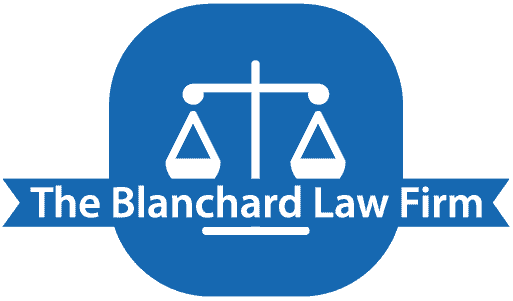
27 Jun 5 Things You Need To Include In Your Estate Plan
Estate Plan Importance
An estate plan is an essential component of comprehensive financial planning. It is crucial to ensure that one’s assets are managed and distributed according to one’s wishes after one’s death. The importance of having an estate plan cannot be overstated, as it provides a range of benefits that safeguard the interests of both the individual and their beneficiaries.

Firstly, an estate plan ensures that your assets are distributed according to your wishes.
Without a will or trust, state laws will determine how your property is divided, which may not align with your preferences. This can lead to unintended beneficiaries, such as distant relatives or the state itself, receiving a portion of your estate. An estate plan allows you to specify who inherits what, ensuring that your loved ones are taken care of according to your intentions.
Secondly, an estate plan can significantly reduce the tax burden on your heirs.
Proper planning can help minimize estate and inheritance taxes, allowing your beneficiaries to retain more of the assets you intended for them. This is particularly important for individuals with substantial estates, as the tax implications can be considerable.
Third, an estate plan can prevent family disputes.
Clearly outlining your wishes can help avoid misunderstandings and conflicts among family members. In the absence of a plan, disagreements over the distribution of assets can lead to lengthy and costly legal battles, straining relationships and depleting the estate’s value.
An estate plan also includes provisions for incapacity. If you become unable to manage your affairs due to illness or injury, having a power of attorney and healthcare directive in place ensures that your financial and medical decisions are made by someone you trust. This prevents the need for court-appointed guardianship, which can be a cumbersome and impersonal process.
While many people assume that estate planning is only for the wealthy, the truth is that everyone can benefit from having an estate plan. Individuals with modest assets still need to ensure that their property is distributed according to their wishes and that their loved ones are protected. Parents with young children, in particular, should have an estate plan to designate guardians for their children in the event of their untimely death.
The Necessities
Creating an estate plan is crucial in ensuring that your assets are distributed according to your wishes, minimizing taxes, and preventing family disputes. Check with a good lawyer, but we’re here to give you some of the most important advice to help you get started. Here are five essential components you need to include in your estate plan:

1. Will or Trust
Will: A will is a legal document that outlines how your assets will be distributed after your death. It allows you to specify who will inherit your property, appoint guardians for minor children, and designate an executor to manage your estate. A will is particularly important for ensuring that your wishes are carried out and that your loved ones are provided for according to your intentions.
Trust: A trust is another legal arrangement that allows you to transfer assets to a trustee, who manages and distributes the assets according to your instructions. There are various types of trusts, including revocable living trusts and irrevocable trusts. A trust can provide greater control over how and when your assets are distributed, offer privacy (as trusts are not subject to probate), and help minimize estate taxes. Trusts can be particularly useful for complex estates or specific goals, such as providing for a disabled beneficiary.
2. Power of Attorney
A power of attorney is a legal document that grants someone you trust (the “agent” or “attorney-in-fact”) the authority to manage your financial affairs if you become incapacitated. This can include paying bills, managing investments, and handling real estate transactions. There are two main types of power of attorney:
General Power of Attorney: This grants broad powers to your agent to manage your financial affairs.
Durable Power of Attorney: This remains in effect even if you become incapacitated, ensuring that your financial matters are handled without interruption.
Choosing a trusted and competent agent is crucial, as they will have significant control over your financial well-being. Having a power of attorney in place can prevent the need for a court-appointed guardian, which can be a time-consuming and costly process.
3. Healthcare Directive (Living Will)
A healthcare directive, also known as a living will, outlines your preferences for medical treatment if you are unable to communicate your wishes due to illness or injury. It can specify your desires regarding life-sustaining treatments, resuscitation, mechanical ventilation, and other medical interventions. This document ensures that your healthcare decisions are respected and relieves your loved ones from making difficult choices on your behalf.
4. Beneficiary Designations
Beneficiary designations are an often-overlooked but essential component of an estate plan. Certain assets like life insurance policies, retirement accounts, and payable-on-death (POD) accounts allow you to name beneficiaries directly. These assets pass outside your will or trust and are transferred directly to the designated beneficiaries upon death.
It is important to regularly review and update your beneficiary designations to ensure they align with your current wishes and circumstances. Failing to update these designations can result in unintended beneficiaries receiving your assets, potentially leading to disputes and legal challenges.
5. Letter of Intent
A letter of intent is an informal document that can accompany your will or trust. While it is not legally binding, it provides additional guidance and context to your executor and loved ones. The letter can include:
- Your wishes regarding funeral and burial arrangements.
- Personal messages to family members and friends.
- Explanations for specific bequests or decisions made in your will or trust.
- Information about the location of important documents and assets.
A letter of intent can be a valuable tool for clarifying your wishes and reducing the potential for misunderstandings and conflicts among your heirs.
Additional Considerations:
Estate Tax Planning
Depending on the size of your estate and the applicable federal and state estate tax laws, you may need to incorporate strategies to minimize estate taxes. This can include gifting strategies, charitable donations, and using trusts to reduce your estate’s taxable value. Consulting with a financial advisor or estate planning attorney can help you develop a tax-efficient plan.
Regular Review and Update
Estate planning is not a one-time task. It is important to regularly review and update your estate plan to reflect changes in your life circumstances, such as marriage, divorce, the birth of children, or significant changes in your financial situation. Additionally, tax law and regulation changes may impact your estate plan, making periodic reviews essential.
Digital Assets
In today’s digital age, it is important to consider your digital assets as part of your estate plan. This includes online accounts, social media profiles, digital photos, and cryptocurrencies. Provide instructions for accessing and managing these assets, and designate a digital executor if necessary.
Conclusion
Creating a comprehensive estate plan involves more than just drafting a will. It requires careful consideration of various elements to ensure that your wishes are honored, your loved ones are provided for, and potential disputes are minimized. Including a will or trust, power of attorney, healthcare directive, beneficiary designations, and a letter of intent in your estate plan can provide peace of mind and protect your legacy. Regularly reviewing and updating your plan ensures that it remains relevant and effective, adapting to changes in your life and the legal landscape. With a well-crafted estate plan, you can confidently manage your affairs according to your wishes, providing security and clarity for those you leave behind.

Sorry, the comment form is closed at this time.